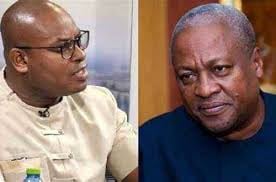The recent imposition of a GHS1 levy on each litre of fuel by the National Democratic Congress (NDC) government in Ghana has sparked a heated debate, with the ruling party defending the move as a necessary measure to address the energy sector’s financial woes and the opposition New Patriotic Party (NPP) criticizing it as an easy way out that burdens the citizens. The levy, introduced through the Energy Sector Levies (Amendment) Bill, 2025, aims to tackle mounting debts within the energy sector, which the government argues is crucial for preventing future power outages and ensuring a stable fuel supply. President John Dramani Mahama acknowledged the difficulty of the decision but justified it as essential to avert the complete collapse of the energy sector. However, the NPP’s National Communications Director, Richard Ahiagbah, contends that the levy is not a difficult decision but rather a convenient way to compensate for systemic inefficiencies, including power theft and corruption, within the Electricity Company of Ghana (ECG).
Ahiagbah argues that a truly difficult decision would entail addressing the root causes of these inefficiencies rather than simply imposing a new tax on consumers. He highlights the Oxford Dictionary’s definition of “difficult” as requiring considerable effort or skill, implying that the government’s decision lacked the necessary effort to implement more effective solutions. Ahiagbah further accuses the NDC of hypocrisy, pointing out their previous promise to scrap taxes like the COVID-19 levy while now implementing a “D-levy” that he claims places a greater burden on Ghanaians than the “E-levy” they previously criticized. This “D-levy,” according to Ahiagbah, represents a broken promise and foreshadows further hardships for the Ghanaian populace.
The crux of the disagreement lies in the perception of the levy’s necessity and the government’s approach to addressing the energy sector’s challenges. The NDC government frames the levy as a painful but unavoidable step to stabilize the energy sector and prevent a return to debilitating power crises, emphasizing its role in settling legacy debts and ensuring consistent fuel supply. President Mahama’s justification centers on the long-term benefits of the levy, portraying it as an investment in a more reliable and sustainable energy future. In contrast, the NPP views the levy as a hasty and ill-conceived measure that unfairly burdens citizens without addressing the underlying problems within the energy sector.
Ahiagbah’s critique centers on the argument that the government has opted for the easiest solution—taxing the public—instead of tackling the more complex issues of inefficiency and corruption within the ECG. He suggests that the government has failed to demonstrate a genuine commitment to resolving the root causes of the energy sector’s financial difficulties. The NPP’s stance implies that the levy is a short-term fix that will ultimately prove ineffective and further exacerbate the plight of ordinary Ghanaians. The debate also touches upon the political implications of the levy, with the NPP accusing the NDC of betraying their pre-election promises and using the levy as a means to compensate for their own mismanagement of the energy sector.
The contrasting perspectives on the fuel levy highlight the complex challenges facing Ghana’s energy sector and the divergent approaches to addressing them. The NDC government emphasizes the immediate need for revenue to stabilize the sector and prevent further crises, prioritizing the long-term benefits of a secure energy supply. The NPP, on the other hand, criticizes the government’s approach as short-sighted and ineffective, arguing that it unfairly burdens the public without addressing the fundamental issues of inefficiency and corruption. This disagreement underscores the broader political and economic debates surrounding resource allocation, governance, and the role of taxation in addressing national challenges.
Ultimately, the effectiveness and long-term impact of the fuel levy remain to be seen. Whether it will indeed contribute to a more stable and sustainable energy sector or simply exacerbate the financial burden on Ghanaians will depend on the government’s ability to address the underlying issues of inefficiency and corruption within the ECG. The ongoing debate serves as a reminder of the complex and often contentious nature of policy decisions and their impact on the lives of ordinary citizens. The political fallout from this decision could also significantly influence the upcoming elections, with the NPP attempting to capitalize on public dissatisfaction with the levy.














